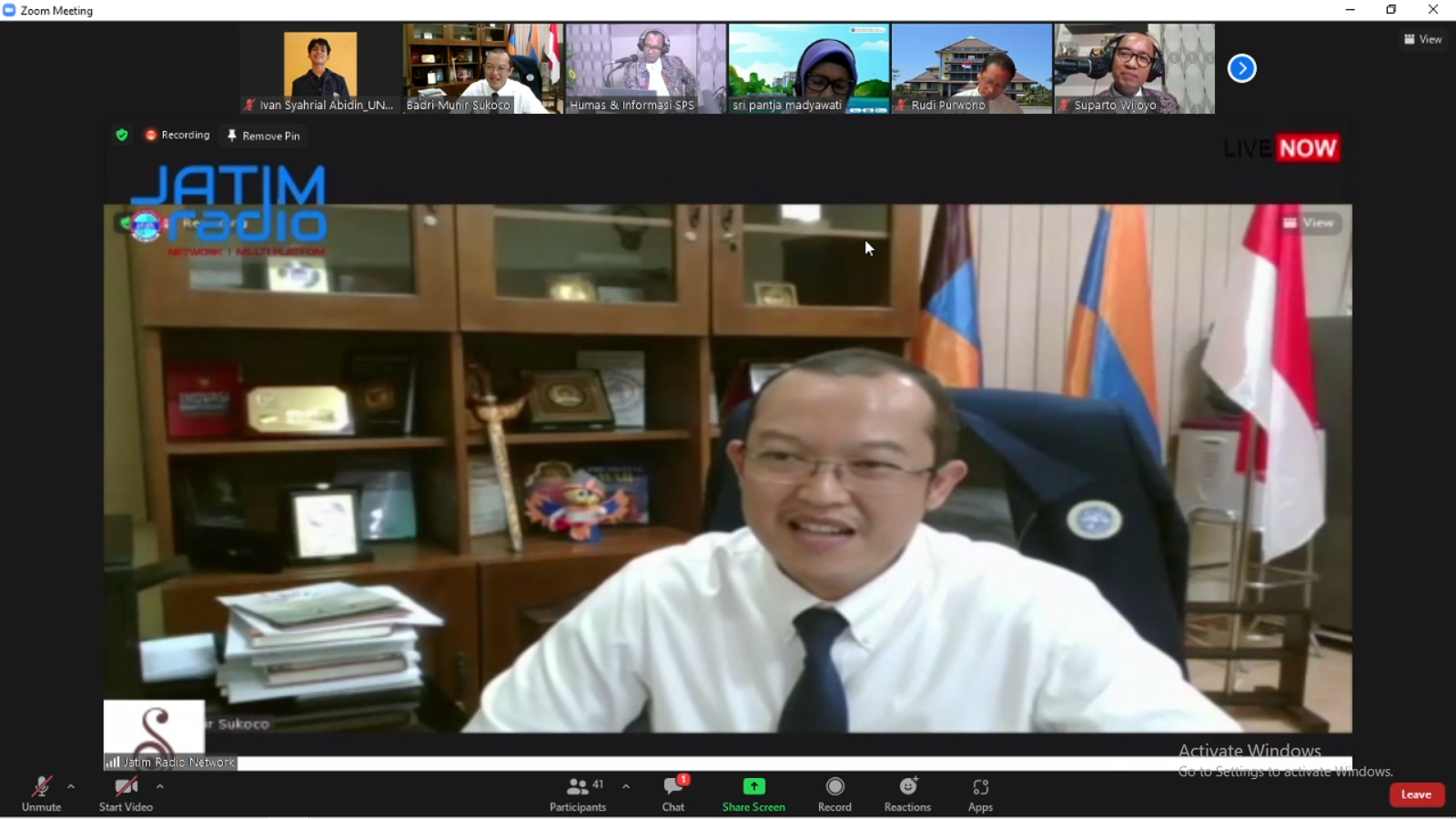UNAIR NEWS – UNAIR Postgraduate School held another Airlangga Forum on Friday, January 7, 2022. In this session, the Airlangga Forum raised the theme of Transformative Leadership by presenting Prof. Dr. KH. Asep Syaifudin Chalim, MA., the founder of the International-Standard Islamic School (MBI) Amanatul Ummah.
MBI Amanatul Ummah itself is a quite inspiring school, as initially it had only 48 students without complete facilities. However, it has now become a “favorite” school with 10,000 students with a lot of achievements. Therefore, the successful journey of KH. Asep in leading the MBI Amanatul Ummah becomes interesting.
Through the Zoom platform, the discussion was moderated by Dr. H. Suparto Wijoyo, S.H., M.Hum (Vice Director III of UNAIR Postgraduate School). In addition to KH. Asep, on that occasion Prof. Badri Munir Sukoco (Director of UNAIR Postgraduate School), Dr. Rudi Purwono, S.E., M.SE (Vice Director I of UNAIR Postgraduate School) and Prof. Dr. Rr. Sri Pantja Madyawati, drh., M.Si (Vice Director II of UNAIR Postgraduate School) were also invited as speakers.
Opening his speech, KH. Asep explained that amid the bad stereotype of schools with minimal infrastructure, MBI Amanatul Ummah keeps improving the quality of educators and school system to compete. Thus, MBI Amanatul Ummah is able to produce quality and superior graduates so that they are able to attract stakeholders to assist the school’s development.
“The qualified educators here refer to our teachers who are competent and responsible to their students, which means they do not only deliver materials but also ensure that the materials delivered are completely mastered by the students,” he said.
Furthermore, he continued, schools must also have a competitive and professional system. Leaders and teachers must be able to internalize the school’s vision and mission so that schools can develop progressively in accordance with the desired corridor.
“Therefore, we read out the school’s vision with our students to instill motivation in every individual,” he said.
KH. Asep continued, in addition to the vision and mission, MBI Amanatul Ummah also set Goals of Graduate. Thus, the implementation of education can focus on developing students according to the targets that have been set.
“Based on the vision and mission, there are four designations for our graduates which encourages them to be scholars, leaders of the nation and the world, conglomerates, and professionals,” he said.
Concerning Transformative Leadership, Prof. Badri continued based on the previous explanation from KH. Asep. The previous explanation is the implementation of all transformative leadership concepts covering idealized influence, inspiration and motivation, individualized consideration, and intellectual stimulation.
“By becoming a professional teacher, he has become a role model. Then, he internalizes the vision and mission that function as motivation and inspiration, which is then translated into Goals of Graduate to stimulate expectation for the graduates,” explained Prof. Badri.
Closing his presentation, Prof. Badri hoped that we could provide a new inspirational model in educational leadership for the success of education in Indonesia through this forum.
“Therefore, our education will be able to produce competent and responsible humans who can lead Indonesia to achieve its noble ideals, justice and prosperity for all Indonesian people,” he concluded. (*)
Author: Ivan Syahrial Abidin
Editor: Khefti Al Mawalia





